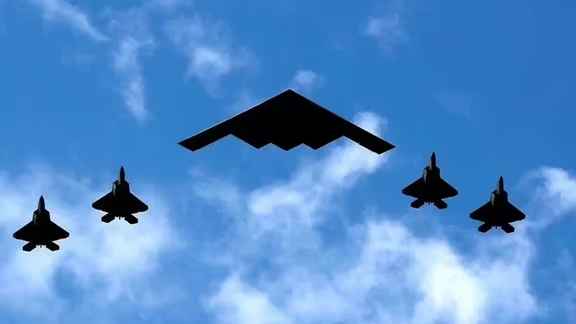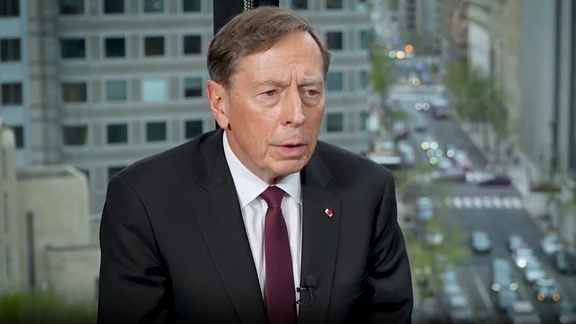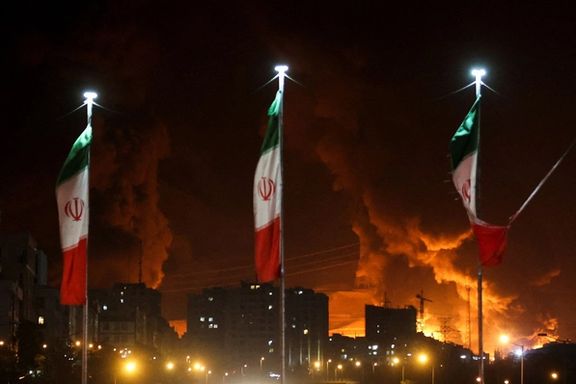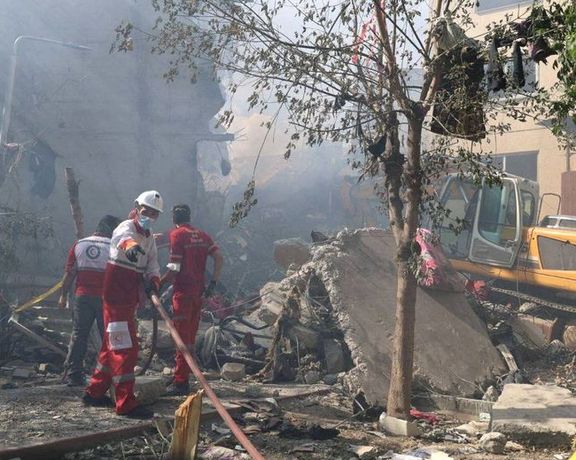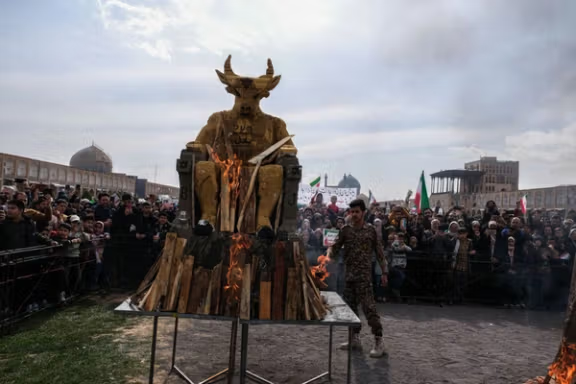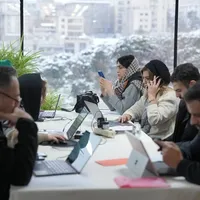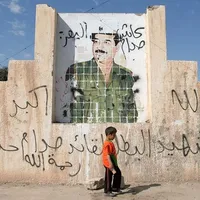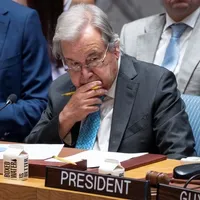"I really think this is going to end by a negotiation,” said Abrams, who served as US Special Representative for Iran from 2020 to 2021.
"They're going to lose this nuclear weapons program, and the question is whether they do it the hard way or the easy way."
Even if the Islamic Republic refuses to surrender, Abrams said more Israeli strikes—followed by a possible US attack targeting an underground nuclear facility—would eventually lead to negotiations, much the way talks settled the Iran–Iraq war.
Eliminating the underground Fordow site in central Iran would likely hinder Tehran’s ability to quickly rebuild its nuclear program but it may not necessarily prevent it from using suspected secret sites to produce nuclear weapons, a prominent nuclear expert said this week.
According to Richard Nephew, a former negotiator during the Obama administration, the United States and Israel must acknowledge that Fordow is not the only pathway for an Iranian nuclear weapons program.
Iran, he argued in a Washington Institute thinktank report, may have other centrifuges available, including at secret sites, and is “probably already at work.”
For his part, Abrams said Fordow is essential to Iran’s program and a necessary military objective, but not a total solution without a broader diplomatic or military campaign.
Abrams was a prominent advocate of preemptive military action against Iraq during George W. Bush’s presidency.
Weapons of mass destruction alleged to be held by Baghdad were never found and the invasion led to a civil war which killed several thousand US troops and tens of thousands of Iraqis.
Trump’s two-week window is ‘strategic’
"Khamenei will soon have that choice: preserve the regime—or risk its collapse under American attack," said Abrams.
White House Press Secretary Karoline Leavitt told reporters Thursday that Trump would decide within two weeks whether to authorize a military strike on Iran.
Trump has previously given himself two-week deadlines on other major decisions—particularly related to the Russia–Ukraine war—and then failed to meet them.
Questions about how Trump will handle the conflict between Israel and Iran have swirled over the last week, and the president has yet to give a straight answer.
Based on Abrams' tenure as Trump’s Iran envoy, he sees this two-week window as a psychological negotiating tactic to throw his adversaries off balance.
It also provides the president with time to explore more options, he added, to see where negotiations may head, and to assess what Israel can accomplish on its own inside Iran.
If Israel is unable to destroy Iran’s fortified Fordow nuclear facility, Abrams believes Trump will likely order a US airstrike using bunker-buster bombs, without deploying troops. That window also allows the US to position its military assets and to give Iran a final chance to negotiate.
“He is moving planes and ships, particularly aircraft carriers and carrier task forces from far away into the Gulf area, the Eastern Mediterranean area, and it takes a week or 10 days,” Abrams told Eye for Iran. “So I don't read into this that he's decided not to do anything.”
“It's a way of giving yourself options until the very last minute.”
Trump’s inner circle
During his tenure as special representative on Iran, Abrams viewed influencing trusted inner-circle figures—like Pompeo during Trump’s first term—as the most effective way to shape Trump's decisions.
Trump’s decision-making is shaped by a small group of trusted advisors, not outside pressure or foreign leaders. Those around him—especially top generals and intelligence officials—play a key role in what happens next.
Currently, his trusted circle, according to Abrams, includes Vice President Vance, Secretary of State Rubio, Generals Kane and Kurilla, and CIA Director Ratcliffe—all of whom remain deeply committed to preventing a nuclear Iran.
“I think he's paying a lot of attention to these two top generals—General Kane, who's the Chairman of the Joint Chiefs of Staff, and General Kurilla, who's the head of CENTCOM, both very experienced four-star generals,” Abrams said.
The generals do not make their opinions known, but from what Abrams gathers, they tend to have a more aggressive stance on Iran and its proxies.
As tensions escalate and the clock on Trump’s two-week window ticks down, all eyes are on Fordow—and on Tehran’s next moves.
